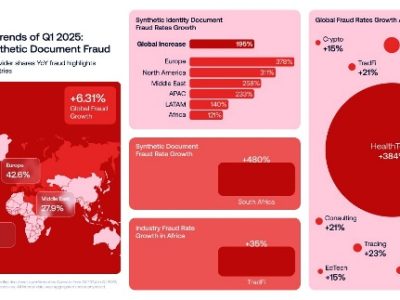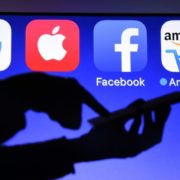Facebook faces facedown
Facebook is about to lose 80% of its users, study says
Social media is like a disease that spreads, and then dies
Facebook’s growth will eventually come to a quick end, much like an infectious disease that spreads rapidly and suddenly dies, say Princeton researchers who are using diseases to model the life-cycles of social media.
Disease models can be used to understand the mass adoption and subsequent flight from online social networks, researchers at Princeton’s Department of Mechanical and Aerospace Engineering say in a study released Jan. 17. The study has not been peer reviewed. Updating traditional models on disease spread to assume that “recovery” requires contact with a non-diseased member—i.e., a “recovered,” non-user of Facebook —researchers predicted that Facebook will see a rapid decline, causing the site to lose 80% of its peak user base between 2015 and 2017.
Basically, Facebook users will lose interest in Facebook over time as their peers lose interest—if the model is correct. ”Ideas, like diseases, have been shown to spread infectiously between people before eventually dying out, and have been successfully described with epidemiological models,” write the researchers. You can check out the full study here: http://arxiv.org/pdf/1401.4208v1.pdf. This part of the report originally written by SAM FRIZELL @Sam_Frizell for Time magazine
Abstract [of the Research]
The last decade has seen the rise of immense online social networks (OSNs) such as MySpace and Facebook. In this paper we use epidemiological models to explain user adoption and abandonment of OSNs, where adoption is analogous to infection and abandonment is analogous to recovery. We modify the traditional SIR model of disease spread by incorporating infectious recovery dynamics such that contact between a recovered and infected member of the population is required for recovery. The proposed infectious recovery SIR model (irSIR model) is validated using publicly available Google search query data for “MySpace” as a case study of an OSN that has exhibited both adoption and abandonment phases. The irSIR model is then applied to search query data for “Facebook,” which is just beginning to show the onset of an abandonment phase. Extrapolating the best fit model into the future predicts a rapid decline in Facebook activity in the next few years.
Introduction [of the Research]
Online social networks (OSNs) have revolutionized interpersonal interaction by greatly facilitating communication between users, leading to the popularity of OSNs seen today. The rise to ubiquity of OSNs has been accompanied by the creation of a multibillion dollar industry to provide these social networking services. Two high profile examples are Facebook ($140 billion) and Twitter ($35 billion), both of which command high valuations based on their large user bases and expectations of growth. Despite the recent success of Facebook and Twitter, the last decade also provides numerous examples of OSNs that have risen and fallen in popularity, most notably MySpace. MySpace, founded in 2003, reached its peak in 2008 with 75.9 million unique monthly visits in the US before subsequently decaying to obscurity by 2011. MySpace was purchased by News Corp for $580 million during its rapid growth phase in 2005 and was sold six years later at a loss for $35 million in 2011. The dynamics governing the rapid rises and falls of OSNs are therefore not only of academic interest, but also of financial interest to incumbent and emerging OSN providers and their stakeholders.
In this paper we analyze the adoption and abandonment dynamics of OSNs by drawing analogy to the dynamics that govern the spread of infectious disease. The application of disease-like dynamics to OSN adoption follows intuitively, since users typically join OSNs because their friends have already joined. The precedent for applying epidemiological models to non-disease applications has previously been set by research focused on modeling the spread of less-tangible applications such as ideas. Ideas, like diseases, have been shown to spread infectiously between people before eventually dying out, and have been successfully described with epidemiological models.
What will this mean in Africa?
Facebook, with its 1.19 billion users, dominates online social networks just as Google dominates search engines. But its dominance of the online social networks will not mark an end to the popularity of social networking; it will only mean the rise of other online networking sites, perhaps much bigger than Facebook; and perhaps with deep African orientation. There are hundreds of online social sites founded locally with considerable large followings in Africa. They are not anywhere near Facebook’s bilion figure or even near a quarter of Twitter’s 554 million active registered users. But the downhill climb of Facebook could mark their rise.
Social networks have grown in popularity both for their social appeal at connecting people and also the attraction they hold at mobilizing youngsters for political or economic ends. While many homegrown social networks focuses on social relationships, an increasing number are engaged with political and economic themes which could become more appealing for youngsters in a continent on the verge of change.
As André-Michel Essoungou notes: “Africans are coupling their already extensive use of cell phones with a more recent and massive interest in social media — Internet-based tools and platforms that allow people to interact with each other much more than in the past. In the process, Africans are leading what may be the next global trend: a major shift to mobile Internet use, with social media as its main drivers. According to Mary Meeker, an influential Internet analyst, mobile Internet and social media are the fastest-growing areas of the technology industry worldwide. Studies suggest that when Africans go online (predominantly with their mobile phones) they spend much of their time on social media platforms (Facebook, Twitter, YouTube and so on).
“In recent months Facebook — the major social media platform worldwide and currently the most visited website in most of Africa — has seen massive growth on the continent. The number of African Facebook users now stands at over 17 million, up from 10 million in 2009. More than 15 per cent of people online in Africa are currently using the platform, compared to 11 per cent in Asia. Two other social networking websites, Twitter and YouTube, rank among the most visited websites in most African countries. Along with regular citizens, African stars, thinkers, political leaders and companies have rapidly joined the global conversation. The Facebook fan base of Côte d’Ivoire’s football star and UN goodwill ambassador Didier Drogba is more than 1 million people. Zambian best-selling author and economist Dambisa Moyo has more than 26,000 followers on Twitter.”
– See more at: http://www.un.org/africarenewal/magazine/december-2010/social-media-boom-begins-africa
More than anything else, Facebook and Twitter have proven to be effective tools at mobilising people around specific political thinking or goals. That was the case in Nigeria’s oil subsidy riots in early 2013. It took just repeated messages on Facebook to mobilise people across cities in Africa’s most populous country of 174 million to cause a mass protest that nearly shut down government for days. The authorities were alarmed. In South Africa writes one observer, “the use of social networking sites such as Facebook, Twitter, MySpace and YouTube has emerged as an important electoral campaigning tool in recent years. Understanding the electoral power of social media could prove very rewarding for political parties, particularly in the lead-up to the 2014 national elections.”
“The potential impact of social media campaigning first became evident in the 2008 United States (US) presidential election. President Barack Obama’s campaign included the use of sites such as Facebook, MySpace and YouTube, along with other social media such as podcasting and mobile messaging. The election, dubbed by some the ‘Facebook election’, saw nearly 70% of the vote among Americans aged 25 years and younger going to Obama.”
Social networks used in Africa
Apart from Twitter, Facebook, LinkedIn, a multitude of other social networks are growing in popularity and have the potential to draw new users online. African social networks popular in Africa include:
MXit: Mobile internet and social networking application based in SA with over 14mm global users
AfricanZone: A general social network, founded in 2008
African Path Village: Runs on Ning
Blueworld: South African community
East African Tube: Based on YouTube
NaijaBorn: A new Nigerian community site
tansali: Focuses on entertainment news
JuJuNation: Video social network
Sembuse: SMS mobile network with 1000 character limit
Maneno: A promising minimalistic blogging platform that offers a variety of languages. Still in Beta stage
Afrigator: A blog, photo, and video sharing network based in South Africa
Gatorpeeps: A social community located at Afrigator that shares similarities to Twitter
Kenya Social Network: A Kenyan version of Linkedin
Gnaija: Nigerian social network
Naijapals: Nigerian social network
Zoopy: A South African social video site with a vibrant look
Asanja: Nigeria but also from other African countries such as Ghana, Cameroon, South Africa, and many others. Aims to become a 100% pan-african social network in the following months. Started late 2009.
LomeShow.com: Popular in Togo, this social network allows photos, music, and videos. The site runs on a the “Smart Community Builder” platform.
AfricanPlanet: Connecting Africans from across the globe – gaining a couple of members every day.
Bongoline: Since July 2010, this social network has aimed to connect Tanzanians.
Swahili Nation: “For anyone who loves Africa (nearly 72,000 members)”
Star53: An integrated social platform with the intention of encouraging communication and African development
Africa Meets Africa: “Diaspora Unplugged”
Veepiz: “Developed by East Africans, this site is a social community and news/marketing outlet”
Ghana Nation: A forum layout with 28,000+ members
KokoLiko: Chat with over 4,000 Ghanaians
Ghanastation: A networking site with a business slant. Integrates with Facebook
SkilledAfricans: The first African Business Network, with over 50,000 members. Similar to LinkedIn
Whive: Kenyan social platform connecting people through SMS, Facebook, and mobile
Motribe: Founded in South Africa, Motribe is a platform enabling users, brands, agencies and publishers across the world to build and manage their own mobile social communities
Afroterminal: African social, business, entertainment, and information Network that connects those at home and abroad
LAGbook: Similar in appearance to Facebook, “Ladies and Gentleman’s book”, was started in April 2010 and now has over 24,000 members. The project was initially intended for University of Lagos students, but is now available in 21 African countries
AfricanSeer: An information portal with 21,000+ members and 1,100+ friendships
Camerborn: Cameroonian social network
The Grid: Location-based Vodafone social network in South Africa
AfricanWeb: New as of mid-2011, AfricanWeb connects Africans and their friends. Has a business-intent and free webmail
1PlusAll: Social network that gained 1,500 users in its first 72 hours in July 2011. Based in Nigeria, but has a global following.
Amunzi: Zambian-based social network that integrates with Facebook. In Beta stage.
Zaamani: Promotes the use of indigenous African languages on the web, along with social and professional interaction between Africans and the world.
Ugandan Facebook: A Facebook clone started in October 2011 for Ugandans.
Bandeka: An invite-only online community where well-educated Africans can connect with other equally successful professionals.
NaijaVideos: Easily share and view Nigerian videos.
Faceafrika: Social networking site dedicated for Africa and Africans Diaspora. Registered in Ghana.
Eskimi: Lithuanian-based mobile flirt site which reports 2.2 million users in Nigeria and over 250 000 users each in Ghana, South Africa, Kenya, Namibia, Tanzania, and Zimbabwe.
OshareK: Egyptian social network started in late-January 2012
Atinsa.net: Site for Beninois to socialize via groups, photos, and videos
Ebbzworld: Ugandan interactive center that connects people with their friends and keeps them updated with the latest music, entertainment and gossip, and helps people share and solve relationship problems
Yookos: an “Africa-specific” social media network claiming 6 million African users
LeAfrique: a business networking startup
Sha: Zimbabwean social network with almost 2,000 members
Nam.na: “Network with Namibians”
Mafrii: Namibian network with a few hundred members
Ebwana: meet and socialize with new people through games, shared interests, friend suggestions, and more
Caligros: new social network that resembles Facebook
Yaalda!: connect and expand with IT enthusiasts
Konekt Africa: online community that connects and shares with Africans all over the world
Ndubana: An Africa professional social network
FriendzDiary: A Nigerian-founded social diary network that gives you the opportunity to connect with friends and loved ones
Afrifaces: Connects Africans home and abroad in African and around the world. Users can even earn money by socializing.
MamboPoint: East African social network still in Beta. Share events and connect with friends.
Afriuka: The largest African diaspora social platform in Europe.
Yaalda!: To reduce the digital divide in Africa.
Wafeo: Business-to-business social network in French & English.
Beeptool: A ‘special environment’ that brings networking possibilities together on one platform
List based on an October 25, 2009 compilation by oAfrica




























